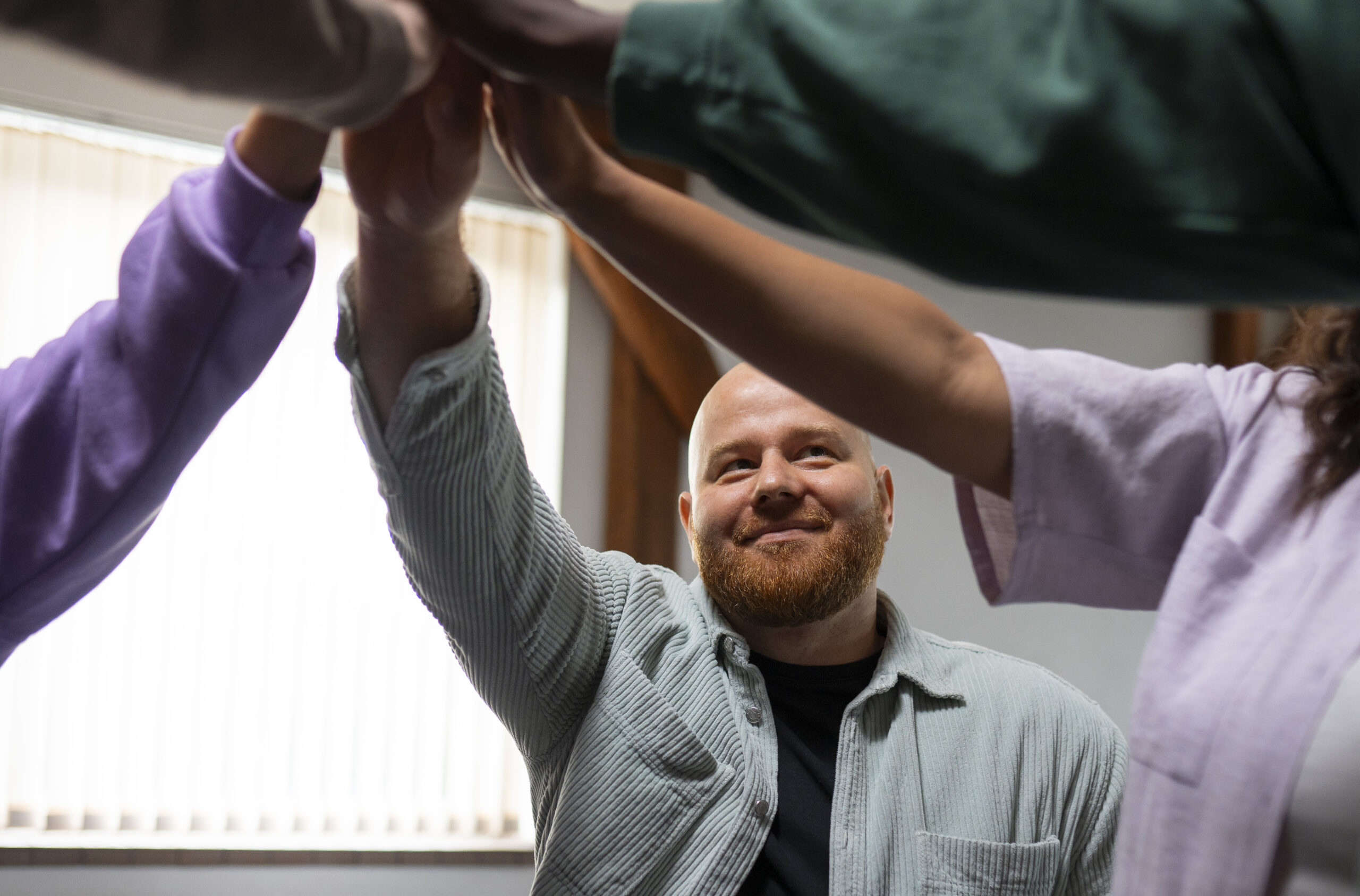Introduction
In today’s workplace, where collaboration, innovation, and adaptability are essential, effective team building has become a cornerstone of organizational success. Strong teams drive performance, foster innovation, and adapt to change. With hybrid and remote work models on the rise, intentional team-building efforts are more critical than ever. A Gallup study shows that companies with high employee engagement experience 21% higher profitability, making team-building efforts a direct contributor to business outcomes.
Core Principles of Team Building
- Trust and Open Communication: Trust is the foundation of any successful team. When team members trust each other, they communicate openly, collaborate more effectively, and tackle challenges together. According to a survey by SHRM, 60% of employees feel that trust among team members is crucial to workplace collaboration. Transparent goal-setting, open feedback channels, and regular check-ins are all effective ways to build trust within teams.
- Fostering Diversity and Inclusion: Diverse teams are more innovative, bringing unique perspectives and ideas that drive creativity. Research from Harvard Business Review indicates that diverse teams are 45% more likely to improve market share. Inclusive practices, like ensuring equal participation, recognizing individual strengths, and creating a safe environment for ideas, make every team member feel valued.
- Goal Alignment and Purpose: Teams that understand and align with organizational goals are more engaged and productive. Team-building activities that highlight shared objectives and values can strengthen alignment and boost morale. Research from Deloitte shows that employees who understand their role in achieving company goals are 42% more motivated.
Effective Team-Building Activities
- Workshops and Training: Skill-building workshops improve employees’ capabilities and create a collaborative learning environment. Teams that learn together develop stronger connections and a sense of shared purpose.
- Team Retreats and Off-Sites: These activities allow employees to step outside of their daily routines, fostering a stronger sense of community and providing a fresh perspective. A study by Cornell University found that team retreats positively impact employee morale, especially when combined with activities that promote relaxation and relationship-building.
- Virtual Team-Building Activities: For remote teams, virtual activities like online icebreakers, collaborative games, and recognition programs help bridge the distance and build camaraderie. Tools like Zoom, Miro, and Slack have become essential in creating virtual team-building experiences that foster engagement and inclusion.
Benefits of Effective Team Building
- Increased Collaboration and Innovation: Strong teams work together effectively, share ideas, and drive innovation. According to MIT, collaborative teams are 5 times more likely to deliver high-quality work.
- Higher Employee Satisfaction and Retention: Team building creates a positive work environment, increasing employee engagement and reducing turnover. Gallup reports that highly engaged teams have 41% lower absenteeism and 24% less turnover.
- Resilience and Adaptability: Well-built teams are better equipped to handle change and adversity, supporting each other through challenges and maintaining productivity even during uncertain times.
Challenges in Team Building
With remote work, team building has become more challenging, with 48% of employees feeling disconnected, according to a Buffer report. To counteract this, companies are increasingly investing in virtual team-building tools and activities to foster connection, even from afar.
Conclusion
Team building is essential to creating an engaged, resilient, and productive workforce. By fostering trust, encouraging diversity, and aligning teams with shared goals, organizations can build high-performing teams that contribute to overall success. With a thoughtful approach to team building, companies can turn their workforce into a powerful asset for growth and innovation.
References
Gallup Study on Employee Engagement: www.gallup.com
SHRM on Trust in Teams: www.shrm.org/hr-today/news/hr-magazine/Pages/0315-employee-surveys.aspx
Harvard Business Review on Diversity: www.hbr.org/2018/11/diversity-in-the-workplace-benefits-and-challenges

